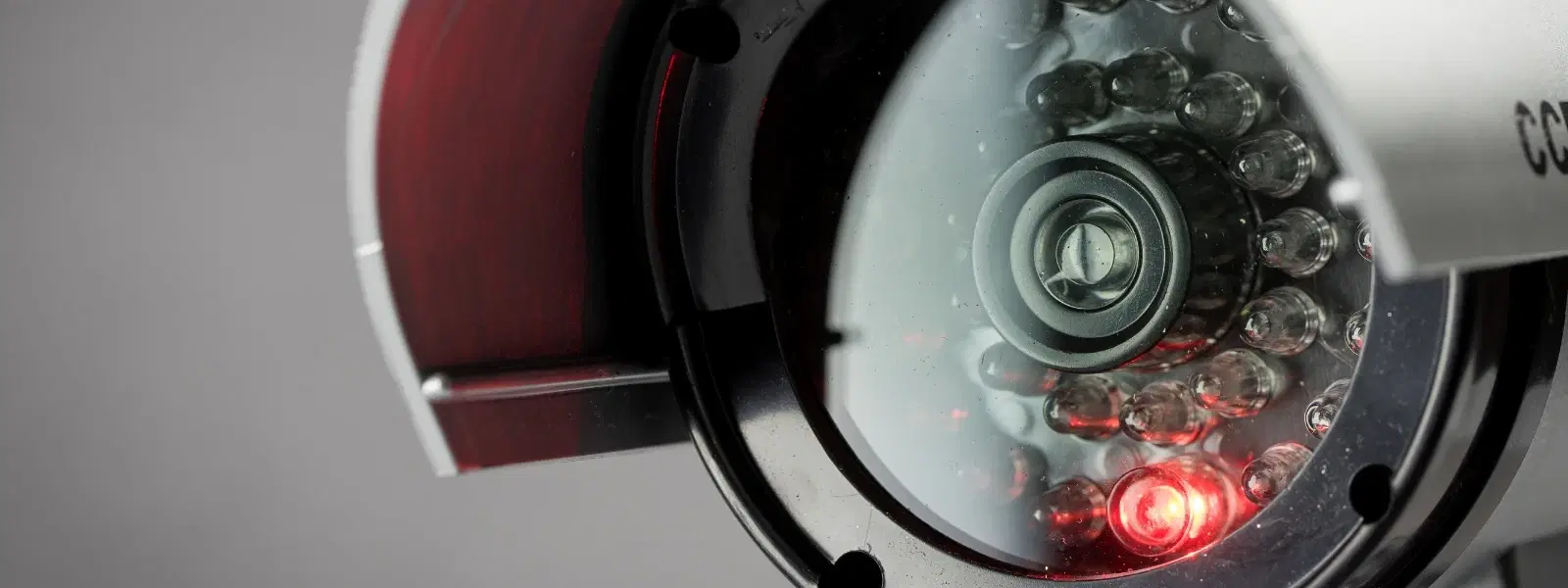
Consumer Electronics
•03 min read
Imagine walking into a room with a CCTV camera silently observing you. But what if it’s not just watching—what if it’s listening too? With advancements in surveillance technology, many are curious about whether CCTV cameras record sound and the implications of this capability. In this guide, you will learn the basics of CCTV audio recording, how these systems capture sound, the features they offer, and the privacy and legal factors you should consider.
Modern CCTV systems often come with audio capabilities. Many models are built as audio-enabled security cameras that not only visually monitor spaces but also record sound. This functionality is available depending on the design and manufacturer, making it easier to capture a detailed picture of any situation.
Most contemporary surveillance cameras integrate a small built-in microphone. The quality and range of sound capture can differ depending on the camera type. For example, dome cameras and bullet cameras may have differing audio capture characteristics, ensuring that the environment’s sounds are recorded clearly. Some systems even support additional external microphones to boost audio quality and sensitivity.
Audio-enabled security cameras offer impressive features such as two-way audio, noise filtering, and adjustable sound sensitivity. These features can make your surveillance setup more interactive and responsive. Indoor cameras often focus on subtle sound nuances, while outdoor models maintain robustness against environmental noise.
Technically, sound recording in surveillance systems involves converting audio signals into digital data and storing them on connected devices like DVRs or NVRs. The process starts when the built-in microphone captures the sound, which is then digitised and encoded for playback. This ensures that every noise, be it conversation or ambient sound, is recorded accurately.
Insight Corner:
Did You Know? Recording sound on CCTV cameras without proper consent can lead to legal consequences in many countries. Always check local laws before enabling audio features on your surveillance systems.
While the audio features in CCTV systems offer enhanced security, they also bring ethical considerations. Recording sound in public or shared spaces can raise privacy concerns. For instance, in the workplace, employees might feel that their conversations are intruded upon. It is essential to establish clear guidelines and obtain necessary permissions to avoid any misuse of audio recordings.
The legal framework for sound recording in surveillance systems varies significantly by region. In many areas, it is mandatory to obtain consent before recording audio. Laws exist to protect individual privacy, so it is crucial to ensure your setup complies with local regulations. This means understanding cctv sound recording laws and following them meticulously.
Before purchasing a CCTV system, inspect the product specifications. Many cameras with audio functionalities will show visible microphone holes or note details about cctv audio recording in their manuals. Observing such design cues can help determine if the system includes audio capabilities.
When selecting a system, it is important to assess your specific needs, the location of installation, and legal requirements. Are you looking for indoor monitoring or outdoor surveillance? Do you need advanced features such as two-way audio or external microphone support? By answering these questions, you can make an informed decision on the right audio-enabled system for you.
At Tata Neu, we understand that investing in technology should not only offer robust performance but also provide convenience and additional value through rewards. When you shop smartly with us, you earn NeuCoins which can be redeemed across your favourite brands. With benefits like Express Delivery for orders placed before 6pm in selected locations, Tata Neu ensures that you receive a seamless shopping experience even when you are investing in the latest in technology.
Yes, many modern CCTV cameras are fitted with microphones for audio recording, though the feature varies by model.
In systems that support audio playback or two-way communication, the sound can be heard live or during playback.
Yes, some audio-enabled security cameras come with built-in microphones that reliably record voice when configured correctly.
The range depends on the microphone sensitivity and ambient noise, generally capturing sound within a few metres.
Legality depends on local laws. In many cases, you might need to seek consent and comply with privacy regulations.
CCTV cameras with audio capabilities provide enhanced surveillance options, but they come with technical, ethical, and legal considerations. By understanding how these systems work, the features they offer, and the laws that govern sound recording, you can make informed decisions about incorporating audio-enabled security cameras into your setup. At Tata Neu, we are committed to helping you progress in life with smart shopping and reliable technology solutions, ensuring that your journey is safe, informed, and rewarding.